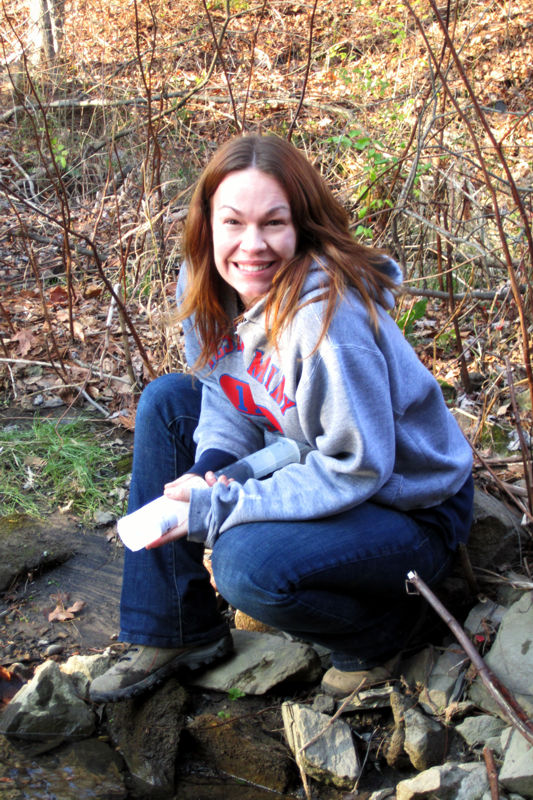
 Chemical Mass Balance Improves Estimates
of Total Streamflow Gains and Losses for a Stream Crossing
Underground Coal Mines
Chemical Mass Balance Improves Estimates
of Total Streamflow Gains and Losses for a Stream Crossing
Underground Coal Mines
 Chemical Mass Balance Improves Estimates
of Total Streamflow Gains and Losses for a Stream Crossing
Underground Coal Mines
Chemical Mass Balance Improves Estimates
of Total Streamflow Gains and Losses for a Stream Crossing
Underground Coal Mines
Hillegas, L.,
Cravotta, C., Levine, L., Sherrod, L.,
2014, Chemical Mass Balance Improves Estimates of Total Streamflow
Gains and Losses for a Stream Crossing Underground Coal Mines
[abs.]: Geological Society of America Abstracts with Programs,
Northeastern Section - 49th Annual Meeting Lancaster, PA, (23–25
March), v. 46, no. 2
 In extensively
mined areas, rapid transfers of runoff, recharge, and discharge can
drive dynamic variations in surface and groundwater quantity and
quality. Because groundwater seepage into a stream can affect ion
concentrations and pH along a flow path, chemical mass balance
estimates may demonstrate gains from groundwater seeps that may not
be apparent solely from flow measurements in a losing stream.
Calculating inflow volume from seeps can supplement direct
measurements of streamflow to improve estimates of total volume lost
or gained. This study investigates the potential for using specific
conductance and associated water quality data to refine estimates of
flow gains and losses along the West West Branch of the Schuylkill
River headwaters.
In extensively
mined areas, rapid transfers of runoff, recharge, and discharge can
drive dynamic variations in surface and groundwater quantity and
quality. Because groundwater seepage into a stream can affect ion
concentrations and pH along a flow path, chemical mass balance
estimates may demonstrate gains from groundwater seeps that may not
be apparent solely from flow measurements in a losing stream.
Calculating inflow volume from seeps can supplement direct
measurements of streamflow to improve estimates of total volume lost
or gained. This study investigates the potential for using specific
conductance and associated water quality data to refine estimates of
flow gains and losses along the West West Branch of the Schuylkill
River headwaters.